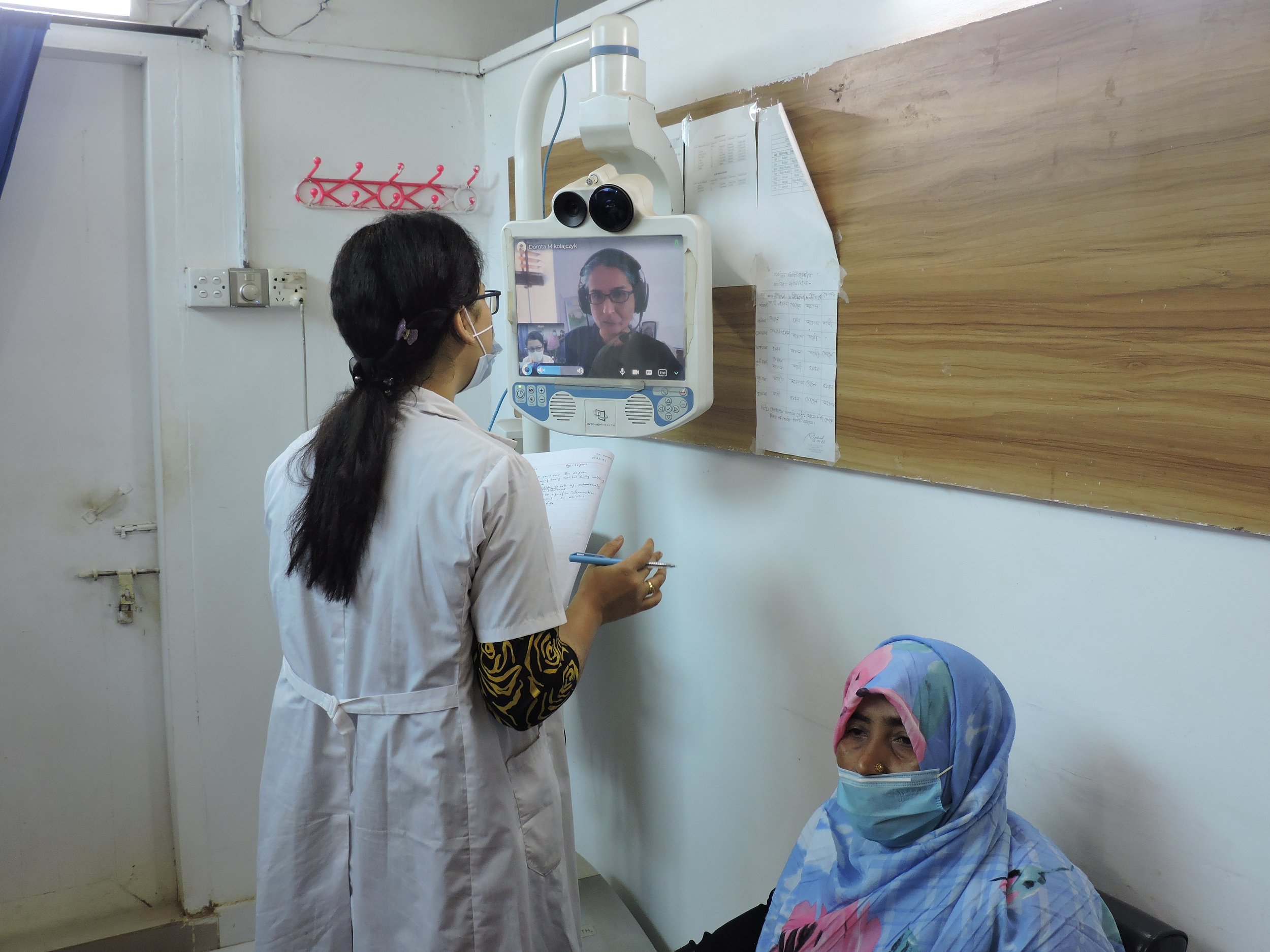Bangladesh
HOPE Hospital, Cox’s Bazar
Program focus: Peer-to-peer training, clinical consults, emergent care
Bangladesh has a shortage of physicians and medical specialists - just 0.64 physicians for every 1,000 people. Many people, especially in rural areas, cannot access the care they need. World Telehealth Initiative’s program at HOPE Hospital provides specialized medical care that would otherwise not be available to patients in need. Through medical mentorship, local physicians are learning and building their skills with each telehealth session.
With support from experts, local physicians are better equipped to address more complex health challenges in their community, providing patients access to high-quality care and improving their quality of life.
In partnership with HOPE Foundation for Women and Children of Bangladesh.
HOPE Field Hospital, Rohingya Refugee Camp
Program focus: Peer-to-peer training, clinical consults, emergent care
The Rohingya refugees are an extremely vulnerable population with unsafe living conditions, poor sanitation, and a history of trauma. The mass migration of 883.6 thousand Rohingya refugees into the Cox’s Bazar area has significantly stressed the region’s health systems and providers.
World Telehealth Initiative supports HOPE Field Hospital by providing medical expertise in various specialties to address the Rohingya’s diverse health needs. Through clinical consultations, patients have access to quality healthcare. WTI volunteer physicians provide hands-on training to the in-country healthcare providers while simultaneously advancing patient care. Each consultation is a learning opportunity for local providers to increase their medical knowledge and diagnostic abilities, helping to lessen the burden on local health systems.
In partnership with HOPE Foundation for Women and Children of Bangladesh.
Filaria and General Hospital, Dhaka
Program focus: Peer-to-peer training, clinical consults
Dhaka is one of the most densely populated cities in the world. With a rapidly growing population, local health systems struggle to keep up with the growing demand. Furthermore, as the center of Bangladesh’s booming garment industry, many people face difficult working conditions, contributing to allergies and related diseases.
WTI’s program in Dhaka focuses on building the expertise of local healthcare providers through clinical consultations in infectious disease, allergy care, and neurology. Volunteer specialists support and guide local healthcare providers via telehealth while collaborating on patient diagnoses and treatment.
In partnership with the Institute of Allergy and Clinical Immunology of Bangladesh.



